The potential consequences of the global financial crisis were a recurrent theme in the programme of presentations. Most of the speakers made reference to the subject in passing, but were confident on the whole that the pet sector would remain reasonably unscathed. However, the general expectation was that, as the recession set in, price would once again become a significant factor for consumers. That could give fresh impetus to the rallying cry of the bargain hunters, "Geiz ist geil" ("thrift is cool"). Sustainability becoming increasingly important "The price remains unbeatable," commented self-proclaimed brand guru Bernd Michael, for instance. But key trends like sustainability will also play an ever greater role, stressed a number of other speakers. In her practically oriented presentation, Dr. Jean Harper, director of nutrition and sustainability at Mars Pet Care, explained how sustainability was placed at the forefront of the company's activities. Since energy management impacts on virtually every aspect of Mars Pet Care's operations, from the choice of raw materials to questions relating to packaging, the company is currently assuming a pioneering role in the pet sector in this field. In pet supplies retailing, Kölle Zoo can claim this piloting function for itself also: Kölle Zoo Stuttgart is the world's first pet store to have received environmental certification. Managing partner Matthias Pohl spoke at length regarding this subject. The growing future importance of sustainability in the pet sector was also stressed by Torsten Toeller. Speaking about organic pet food, he accused the industry of failing to pick up on the organic trend, although he also conceded that many retail firms were still far too passive about the subject. There was great interest in what many speakers had to say regarding the opportunities for development of the pet sector in central and eastern Europe. Representatives of leading companies in Bulgaria and Romania used market data to outline the market trends in their native countries. Erik Lambrecht, commercial director of Belgian company Versele Laga, referred to the potential and growing importance of keeping pets. This was underlined by the high annual growth rates in these countries. However, he warned against overestimating the still limited size of the pet product markets there. Eastern Europe is a region in which the big players in the sector have stolen a march on…

An exhilarating ride across Europe
The potential consequences of the global financial crisis were a recurrent theme in the programme of presentations. Most of the speakers made reference to the subject in passing, but were confident on the whole that the pet sector would remain reasonably unscathed. However, the general expectation was that, as the recession set in, price would once again become a significant factor for consumers. That could give fresh impetus to the rallying cry of the bargain hunters, "Geiz ist geil" ("thrift is cool"). Sustainability becoming increasingly important "The price remains unbeatable," commented self-proclaimed brand guru Bernd Michael, for instance. But key trends like sustainability will also play an ever greater role, stressed a number of other speakers. In her practically oriented presentation, Dr. Jean Harper, director of nutrition and sustainability at Mars Pet Care, explained how sustainability was placed at the forefront of the company's activities. Since energy management impacts on virtually every aspect of Mars Pet Care's operations, from the choice of raw materials to questions relating to packaging, the company is currently assuming a pioneering role in the pet sector in this field. In pet supplies retailing, Kölle Zoo can claim this piloting function for itself also: Kölle Zoo Stuttgart is the world's first pet store to have received environmental certification. Managing partner Matthias Pohl spoke at length regarding this subject. The growing future importance of sustainability in the pet sector was also stressed by Torsten Toeller. Speaking about organic pet food, he accused the industry of failing to pick up on the organic trend, although he also conceded that many retail firms were still far too passive about the subject. There was great interest in what many speakers had to say regarding the opportunities for development of the pet sector in central and eastern Europe. Representatives of leading companies in Bulgaria and Romania used market data to outline the market trends in their native countries. Erik Lambrecht, commercial director of Belgian company Versele Laga, referred to the potential and growing importance of keeping pets. This was underlined by the high annual growth rates in these countries. However, he warned against overestimating the still limited size of the pet product markets there. Eastern Europe is a region in which the big players in the sector have stolen a march on…

 Menü
Menü

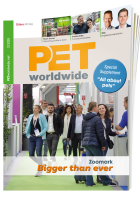



 Special issue 12/2008
Special issue 12/2008
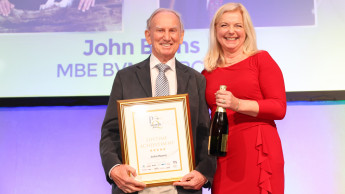

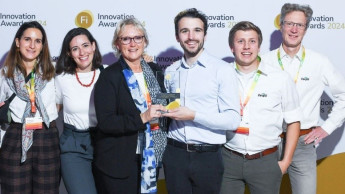
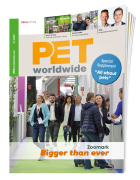
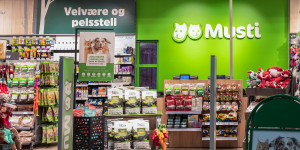

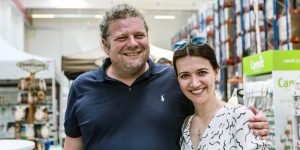
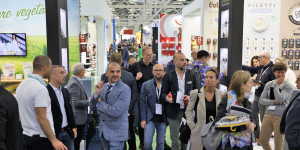

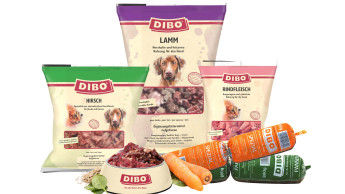

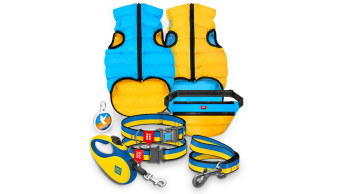
 Newsletter
Newsletter